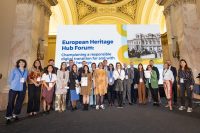-
Join the
Digital Meets Culture
Newsletter! -
Join the
Digital Meets Culture
Open Newsroom! If you have interesting news and events to point out in the field of digital cultural heritage, we are waiting for your contribution.
If you have interesting news and events to point out in the field of digital cultural heritage, we are waiting for your contribution.
-
Free text
-
-
Upcoming events
-
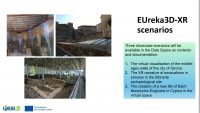 The kick-off for the new project, continuation of the successful EUreka3D, is organized in Pisa by coordinator Photoconsoritum on 26-27 February 2025
The kick-off for the new project, continuation of the successful EUreka3D, is organized in Pisa by coordinator Photoconsoritum on 26-27 February 2025EUreka3D-XR – European Union’s REKonstructed content in 3D to produce XR experiences EUreka3D-XR is the continuation project of EUreka3D, funded by the Digital Europe Programme of the European Union, to develop innovative re-use scenarios and tools that enable the creation … Continue reading →
 Siena (Italy), 8-13 September 2025
Siena (Italy), 8-13 September 2025 As the leading global event on digital technology for documenting, conserving, and sharing heritage—from landscapes and monuments to museums, collections, and intangible traditions—the Digital Heritage International Congress offers a unified stage for major world conferences, workshops, and exhibitions. … Continue reading →
Author Archives: admin

Programmed by professionals working in the field, the annual AMIA Conference is the largest gathering of motion picture and recorded sound archivists and interested professionals. More than 550 people from around the world, interested in the preservation and use of moving image materials, meet every year to share information and work together. The 2017 edition of the AMIA Conference will be held on 29 November – 2 December 2017 in New Orleans. Continue reading
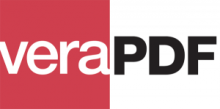
On Friday, November 24, PACKED and the Royal Library of Belgium, in collaboration with the Open Preservation Foundation, organise a workshop “Quality Control of PDF Files”. The workshop is intended for digital archivists who are responsible for the long-term preservation of PDF files. During the workshop you will learn how to gain an insight into the technical properties of PDF files and what you can do to preserve them for future generations. The workshop is conceived as a hands-on session, where participants get started with PDF files from their own collection. Continue reading
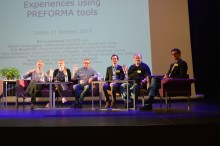
Hosted by the National Library of Estonia, the PREFORMA International Conference “Shaping our future memory standards” brought together 150 people worldwide to discuss the importance of standardisation and file format validation for the long term preservation of digital cultural content, discover the potential of the open source conformance checkers developed in PREFORMA and look at future challenges and opportunities. Continue reading
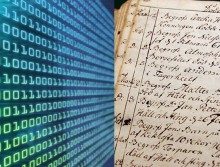
We are pleased to announce that The PREFORMA Handbook is now available to download. This publication is intended as a practical guidebook to be offered as a critical instrument to decision-makers in cultural heritage institutions, to support them in the analysis of problems and the identification of viable solutions, and as a technical reference to managers of digital archives and developers, to offer them guidance on how to use the PREFORMA tools. Continue reading
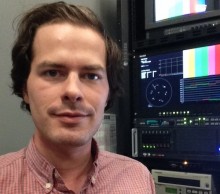
This is the seventh in a series of interviews with people using MediaConch within their institutions. Brendan is AudioVisual Digitization Technician at the University of California. He is using MediaConch both on the raw XDCAM captures, to make sure that they’re appropriate inputs to the ingest script, and on the outputs, to make sure the script is functioning correctly. Continue reading
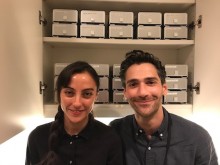
This is the sixth in a series of interviews with people using MediaConch within their institutions. Ben and Geneve work in the Audio and Moving Image Preservation Unit at at New York Public Library. MediaConch is an integral part of the Quality Control workflow to reformat audio and moving image research collections and specific policies have been created to this purpose. Continue reading
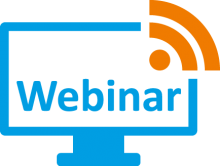
The PREFORMA project that commissioned and funded the development of veraPDF draws to an end this year. Recent activity has been focused on PREFORMA acceptance testing, formalising the decisions of the PDF Association’s Technical Working Group and fixing issues reported by the community. In this webinar, the veraPDF Consortium will present the results of recent development and the plans for life after PREFORMA. Continue reading

Julia Kim is the Digital Assets Specialist at the American Folklife Center at the Library of Congress. So far, she has primarily used MediaConch to create reports for new and incoming born-digital video from the Civil Rights History Project and the DPX files from digitizing celluloid film. Continue reading
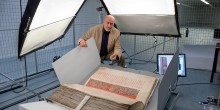
Digital preservation means taking precautions to ensure long-term access to digital content. It mitigates the risk of files becoming obsolete or unusable in the future. The PREFORMA tools help you validate incoming file formats and codecs against their standard specification, define custom acceptance criteria, and build an efficient ingest workflow. Download and try them from the PREFORMA Open Source Portal! Continue reading
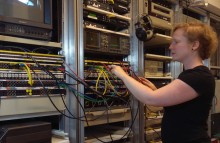
Marion is a video archivist at the Austrian Mediathek, the Austrian video and sound archive. Her main area of work is the digitization of analogue videos and quality control of video files entering the digital archive. The main use case for MediaConch is to check if files that were produced outside of the default workflow procedure meet the policy for the archival master. Continue reading





























